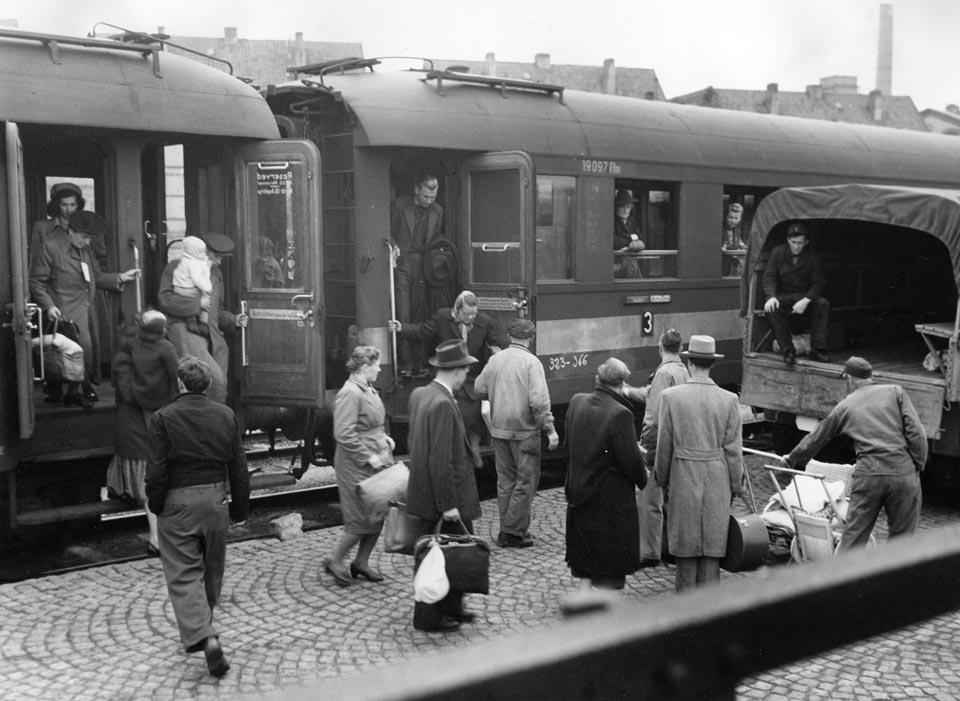Partnership with European Union Has Upheld the Rights of the Poor

LWF work began at the end of World War II with service to displaced persons such as these in Germany arriving at an embarkment center from area resettlement camps. © Archives of the Evangelical Lutheran Church in America
LWF Congratulates EU for Nobel Peace Prize Award
The Lutheran World Federation (LWF) has expressed gratitude to the European Union (EU) for a long standing partnership that upholds values that support human dignity and the rights of the poor and oppressed people in society.
In a statement congratulating the EU for being awarded the 2012 Nobel Peace Prize, LWF General Secretary Rev. Martin Junge said “the LWF and its member churches have greatly benefited from the EU and its work.”
On 12 October the Norwegian Nobel Committee announced the EU as the winner of this year’s Nobel Peace Prize, noting that for over six decades it had contributed to peace and reconciliation, democracy and human rights in Europe.
Junge underlined that peace in the European region “was a tremendous achievement for which the LWF is profoundly grateful.” He recalled the beginnings of the LWF’s work at the end of World War II, which included service to displaced persons mainly in Europe and assisting in the reconstruction of the continent. During the Cold War that followed, the LWF struggled to build bridges across Europe and to maintain the communion between churches living in greatly different contexts.
His statement cited the urgent challenges confronting Europe including the economic crisis, unacceptably high levels of unemployment–especially among youth–and the growing wealth gaps between individuals, countries in the region and elsewhere in the world. “We give thanks that in dealing with these issues, Europe is no longer under the shadow of war, no longer living in fear,” Junge added.
He underlined the need to continue working for peace as an everyday task within communities, nations and with the creation. (292 words)

